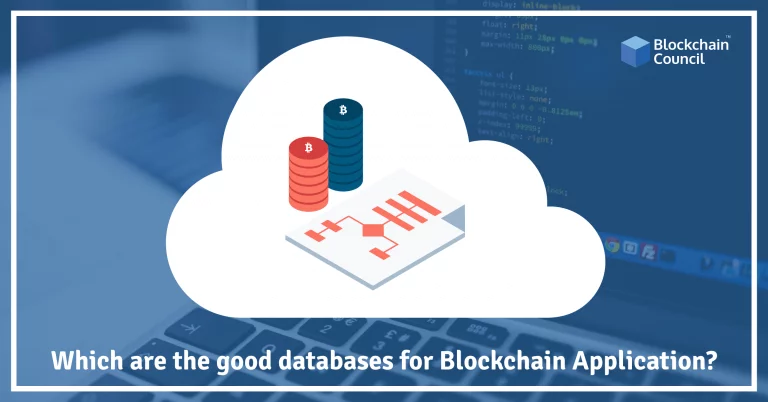
- Blockchain Council
- September 13, 2024
Summary
- Cybersecurity is crucial in today’s digital age due to the increasing cyber threats.
- Cybersecurity experts are essential for protecting sensitive information from diverse threats, including hackers and state-sponsored espionage.
- The global shift towards remote work and digitalization emphasizes the need for strong cybersecurity measures.
- Continuous learning and dedication are required to become a cybersecurity expert.
- Building a strong foundation includes understanding the core concepts of cybersecurity and having a solid educational background.
- Technical skills such as programming, network security, and ethical hacking are essential for success.
- Soft skills like effective communication and problem-solving complement technical expertise.
- Cybersecurity certifications like the Certified Cybersecurity Expert™ can enhance your credentials.
- Specializations in areas like network security, cloud security, and IoT security offer diverse career paths.
- Mastering cybersecurity tools like antivirus software, firewalls, and intrusion detection systems is crucial for expertise in the field.
Introduction
In today’s digital age, cybersecurity is paramount, safeguarding against evolving threats. Cyber experts are vital protectors of our online world. With cyberattacks on the rise, cybersecurity experts play a pivotal role in defending sensitive information. Cyber threats are diverse, from hackers seeking financial gain to state-sponsored espionage, making cybersecurity expertise indispensable. The global shift towards remote work and digitalization intensifies the need for robust cybersecurity measures. As technology advances, so do the tactics of cybercriminals, underscoring the continual demand for skilled cybersecurity professionals. The consequences of a security breach can be catastrophic, affecting not only organizations but also individuals’ privacy. Intricacies of cyber threats demand expertise in various fields, from network security to ethical hacking. Becoming a cybersecurity expert is a rewarding path that demands dedication and continuous learning. To embark on this journey, you must first understand the cybersecurity landscape and its significance. Start by acquiring the foundational knowledge, including a strong educational background and essential technical skills.
Building a Strong Foundation
- Understand what cybersecurity entails, its significance, and its prerequisites for success. Begin by familiarizing yourself with operating systems, networks, and essential coding languages. These foundational knowledge areas are crucial. Dive deeper into cybersecurity fundamentals, comprehending its core concepts and principles. This knowledge forms your cybersecurity bedrock.
- Becoming a cybersecurity expert demands commitment, starting with a strong educational foundation. Most cybersecurity professionals hold degrees in computer science, IT, or related fields. This provides you with a foundational understanding of technology. Mastering mathematics and programming languages is vital for understanding complex cybersecurity concepts. Develop problem-solving skills and a keen analytical mindset, as cybersecurity often involves troubleshooting.
Also Read: Top 5 Career Options in Cybersecurity
The Prerequisites
Educational Background
Many experts in the field hold bachelor’s degrees in computer science, information technology, or cybersecurity. These programs provide you with a solid understanding of the core concepts, protocols, and technologies that underpin cybersecurity. However, formal education isn’t the only path; self-study can also be effective. Programming skills are invaluable. Learn languages like Python, Java, and C++. This knowledge forms a solid base. Networking fundamentals are crucial. Grasp concepts like TCP/IP, DNS, and subnetting. They underpin cybersecurity. Cybersecurity-specific courses are available online. Enroll to gain specialized knowledge and cyber security certification by the Blockchain Council.
Technical Skills
Learn penetration testing and vulnerability assessment techniques. Acquire skills to develop applications with security in mind. Understand firewalls, intrusion detection systems, and VPNs. Grasp encryption algorithms and their application. Be proficient in Linux, Windows, and macOS. Set up a home lab to experiment and refine your skills. Consider CISSP, CEH, and CompTIA Security+ to validate your expertise. Hone your problem-solving skills for resolving complex security issues. Develop the ability to document and report security incidents accurately.
Soft Skills
In the journey to becoming a cybersecurity expert, technical skills are crucial, but soft skills are equally vital. These interpersonal skills complement your technical prowess and are often the key to success in this field.
Effective communication is paramount. Cybersecurity experts must convey complex technical information to non-technical stakeholders. Collaboration with teams, explaining threats, and proposing solutions demand clear and concise communication. Cybersecurity isn’t a solitary endeavor. Collaborative skills are vital for working in multidisciplinary teams. You’ll collaborate with IT, legal, and management professionals. Cyber threats are ever-evolving puzzles. Strong problem-solving skills help you analyze and counteract these threats effectively.
Cybersecurity Certification That You Can’t Miss
The Certified Cybersecurity Expert™ certification by the Blockchain Council is a 14-hour self-paced, online program designed to equip you with the knowledge and skills needed to excel in the field of cybersecurity. This comprehensive course covers a wide range of topics, including threat analysis, security architecture, risk management, data confidentiality, integrity, and availability.
With the ever-increasing sophistication of cyber threats, cybersecurity has become paramount in today’s digital landscape. This certification provides you with the expertise required to understand and combat these threats effectively. The lifelong valid certification also makes you stand out from the crowd in the cyber security field.
By enrolling in the Certified Cybersecurity Expert™ program, you can become a recognized authority in the dynamic field of cybersecurity and contribute to the ongoing fight against cyber threats.
Also Read: How to Start a Cyber Security Career in 2024?
Choosing Your Specialization
Network Security
Network security primarily focuses on protecting an organization’s computer networks from unauthorized access, attacks, and data breaches. It involves a wide range of techniques and tools to ensure that network infrastructure remains secure. To become a network security expert, you must acquire specific technical skills. Proficiency in firewalls, intrusion detection systems (IDS), intrusion prevention systems (IPS), and virtual private networks (VPNs) is essential. Work on real-world network security projects or participate in Capture The Flag (CTF) competitions to hone your skills.
Cloud Security
In today’s digital landscape, businesses and organizations heavily rely on cloud computing for data storage, software, and more. However, this increased reliance on the cloud also opens up new security challenges and vulnerabilities. As a Cloud Security specialist, you’ll be tasked with securing cloud infrastructure, applications, and data from cyber threats. This specialization demands a strong understanding of cloud platforms like AWS, Azure, or Google Cloud. You’ll need to master concepts such as Identity and Access Management (IAM), encryption, and security compliance specific to cloud environments.
IoT Security
IoT, or the Internet of Things, refers to the network of interconnected devices such as smart appliances, sensors, and more. As an IoT security expert, your role will be to safeguard these devices from cyber threats and vulnerabilities. This specialization demands a deep understanding of IoT protocols, hardware, and software. To excel, you’ll need to keep pace with the rapid evolution of IoT technologies and their associated risks. Strong knowledge of encryption, authentication, and secure communication in IoT is essential. Your expertise will contribute to the protection of critical systems like smart cities, healthcare, and industrial IoT.
Learning from Real-Life Case Studies
| Category | Notable Cybersecurity Breaches | Success Stories |
| Government and Defense | – SolarWinds (2020): Infiltration of U.S. government agencies and corporations.
– OPM (2015): Breach of U.S. Office of Personnel Management data. |
– Israel’s Iron Dome: Successfully defended against cyberattacks during military conflicts. |
| Healthcare | – Anthem (2015): Health insurance company breach exposing 78.8 million records.
– WannaCry (2017): Ransomware attack on global healthcare systems. |
– Mayo Clinic: Implemented robust cybersecurity measures to protect patient data effectively. |
| Financial | – Equifax (2017): Massive data breach affecting 147 million consumers.
– JPMorgan Chase (2014): Hack compromising data of 76 million households. |
– PayPal: Continuously enhances fraud detection systems to safeguard financial transactions. |
| Technology | – Sony Pictures (2014): Cyberattack exposing sensitive company data and emails.
– Yahoo (2013-2014): Data breaches compromising billions of user accounts. |
– Google: Uses advanced AI for threat detection and has a strong track record of thwarting attacks. |
| Retail | – Target (2013): Breach involving 40 million credit card details and 70 million customer records.
– Home Depot (2014): Attack impacting 56 million payment cardholders. |
– Amazon: Implements robust security practices for its e-commerce and cloud computing services. |
| Critical Infrastructure | – Colonial Pipeline (2021): Ransomware attack disrupting fuel supply.
– Ukraine Power Grid (2015): Cyberattack causing widespread power outages. |
– Siemens: Enhances industrial control system security for critical infrastructure worldwide. |
Also Read: Blockchain in Construction and Infrastructure Management
Mastering Cybersecurity Tools
| Cybersecurity Tool | Key Features | Use Cases |
| A. Antivirus Software | – Malware detection and removal | – Scanning and protecting against malicious software |
| – Real-time monitoring | – Preventing unauthorized access | |
| – Automatic updates | – Blocking phishing attempts | |
| – Quarantine and removal of infected files | ||
| B. Firewall Solutions | – Network traffic control and monitoring | – Protecting network from unauthorized access |
| – Packet filtering and access control | – Monitoring and filtering incoming/outgoing traffic | |
| – Intrusion prevention | – Blocking malicious websites and applications | |
| – VPN support for secure remote access | ||
| C. Intrusion Detection Systems | – Real-time monitoring of network traffic | – Detecting and alerting on potential security breaches |
| (IDS) and Intrusion Prevention | – Anomaly detection based on predefined patterns or behaviors | – Identifying and mitigating unauthorized activities |
| Systems (IPS) | – Immediate response to detected threats | – Blocking and preventing identified threats |
| – Integration with firewall for automated threat response | – Enhancing overall network security |
Antivirus Software
- Antivirus software is like a vigilant guardian for your computer systems. It scans files and programs for malicious code, preventing malware from infiltrating your devices. To master this tool effectively, you must consider a few key aspects.
- Firstly, familiarize yourself with different antivirus software options available in the market. Prominent names include Norton, McAfee, Bitdefender, and Avast. Each has its strengths and weaknesses, so it’s essential to choose one that aligns with your specific needs and preferences. Next, understand how antivirus software operates. Learn about its scanning techniques, such as signature-based scanning, behavioral analysis, and heuristic analysis. Knowing these methods will help you comprehend how the software identifies and neutralizes threats. Regular updates are crucial. Antivirus databases need to be constantly refreshed to recognize the latest threats.
- Antivirus software might sometimes mistakenly flag legitimate files as threats or miss actual malware. Understanding how to differentiate between these scenarios will save you from unnecessary panic or negligence.
Firewall Solutions
- Firewall solutions play a pivotal role in the world of cybersecurity. They act as barriers, safeguarding your network from unauthorized access. To become a cybersecurity expert, mastering firewall solutions is crucial.
- Firewalls work by analyzing network packets and determining whether they should be allowed or blocked based on a set of predefined rules. These rules can be customized to suit your specific security needs.
- Firewalls use various methods like packet filtering, stateful inspection, and deep packet inspection to assess and control traffic. Selecting the right firewall solution depends on your network’s size, complexity, and the level of security you require. For small businesses or home networks, a basic firewall router may suffice. Larger organizations may opt for enterprise-grade firewalls with advanced threat detection capabilities.
Also Read: Flux- The Future Of Web3 Infrastructure
Intrusion Detection Systems (IDS) and Intrusion Prevention Systems (IPS)
Intrusion Detection Systems are your digital sentinels, constantly monitoring network traffic. They meticulously analyze data, seeking anomalies and known attack patterns. IDS serves as an early warning system, alerting you to potential threats. Intrusion Prevention Systems (IPS) play a pivotal role in safeguarding digital environments. They not only detect suspicious activities but also intervene to block or prevent them. IPS is like a digital bouncer, keeping unauthorized intruders out of your network.
To become a cybersecurity expert, you must thoroughly understand IDS and IPS. Familiarize yourself with popular tools such as Snort, Suricata, and Bro for IDS. Cisco Firepower and Palo Alto Networks are two prominent players in the world of IPS. Both systems offer real-time threat analysis and response, ensuring that any suspicious activity is promptly addressed. Apply your knowledge in real-world scenarios. Configure IDS to detect specific threats and fine-tune IPS to respond effectively. This synergistic approach maximizes your defense capabilities. IDS detects, and IPS takes immediate action, creating a formidable barrier against cyber threats.
Conclusion
In this journey to becoming a cybersecurity expert, you’ve learned crucial steps. Gain proficiency in programming languages such as Python and C++. Navigate legal and ethical aspects by understanding relevant laws and guidelines. Create a compelling resume and establish an online presence through platforms like LinkedIn. Prepare for interviews with technical and behavioral questions. Start your career with entry-level positions or transition from internships to full-time roles.
Ethical guidelines are equally important. They define acceptable behavior within the cybersecurity community. Adhering to these guidelines ensures you operate with integrity and professionalism. One prominent set of ethical guidelines is the Certified Information Systems Security Professional (CISSP) Code of Ethics. It covers issues like confidentiality, integrity, and ethical conduct in the workplace. Cybersecurity operates within a framework of laws and regulations that vary by country and region. For example, in the United States, the Federal Information Security Management Act (FISMA) sets the tone. These laws often dictate how organizations should handle data breaches, privacy, and disclosure.
Don’t hesitate to take that first step—whether it’s enrolling in a course, setting up a home lab, or seeking an internship. Keep your passion alive and your curiosity burning. You have the potential to make a significant impact in safeguarding digital landscapes. So, seize the opportunity and start your cybersecurity journey today!
Frequently Asked Questions
What educational background is required to become a cybersecurity expert?
- Many cybersecurity experts hold bachelor’s degrees in computer science, information technology, or cybersecurity.
- Formal education provides a solid understanding of core concepts, protocols, and technologies in cybersecurity.
- Self-study can also be effective, and programming skills in languages like Python, Java, and C++ are invaluable.
- Proficiency in networking fundamentals, including concepts like TCP/IP, DNS, and subnetting, is crucial.
What are the key technical skills required to excel in cybersecurity?
- Learn penetration testing and vulnerability assessment techniques.
- Acquire skills for developing applications with security in mind.
- Understand firewalls, intrusion detection systems, and VPNs.
- Grasp encryption algorithms and their application.
- Be proficient in operating systems like Linux, Windows, and macOS.
- Set up a home lab to experiment and refine your skills.
- Consider globally renowned cyber security certification like the Certified Cybersecurity Expert™.
- Hone your problem-solving skills for resolving complex security issues.
- Develop the ability to document and report security incidents accurately.
What are some soft skills that are important for a cybersecurity expert?
- Effective communication is paramount for conveying technical information to non-technical stakeholders.
- Collaboration skills are vital for working in multidisciplinary teams, including IT, legal, and management professionals.
- Strong problem-solving skills help in analyzing and countering evolving cyber threats effectively.
- Ethical guidelines and professionalism ensure integrity in the cybersecurity field.
- Familiarity with relevant laws and regulations, such as the CISSP Code of Ethics and country-specific laws, is essential.
What are some recommended cybersecurity specializations and how can one excel in them?
- Network Security: Acquire proficiency in firewalls, intrusion detection systems (IDS), intrusion prevention systems (IPS), and virtual private networks (VPNs). Participate in real-world projects or Capture The Flag (CTF) competitions to enhance your skills.
- Cloud Security: Master cloud platforms like AWS, Azure, or Google Cloud. Understand concepts like Identity and Access Management (IAM), encryption, and security compliance specific to cloud environments.
- IoT Security: Deepen your knowledge of IoT protocols, hardware, and software. Stay updated on evolving IoT technologies and associated risks. Focus on encryption, authentication, and secure communication in IoT.
- Learning from Real-Life Case Studies: Studying notable cybersecurity breaches and success stories provides valuable insights into real-world scenarios and solutions, helping you become a more effective cybersecurity expert.





































































 Guides
Guides News
News Blockchain
Blockchain Cryptocurrency
& Digital Assets
Cryptocurrency
& Digital Assets Web3
Web3 Metaverse & NFTs
Metaverse & NFTs
